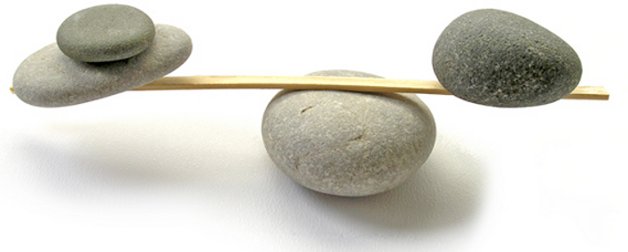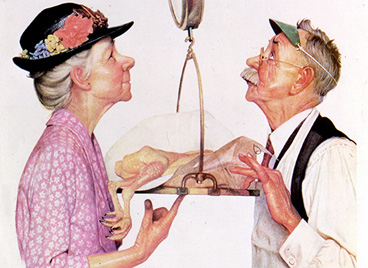What are the advantages to self-publishing a book?
Pretty soon I’ll be hitting my one-year mark since I began my self-publishing venture. With less than 12 months under the belt, I’m not going to pretend I’ve become some kind of guru in the world of publishing. But this year has given me enough perspective to notice some solid advantages to the self-publishing model.
The scales are still tipped in favor of traditional publishers, of course. We would be foolish to think otherwise. So let’s first be honest as to where traditional publishers still dominate:
1) Connections
Publishing houses (even the independent ones) have all the connections. They can get their books reviewed by major authors, featured by well-known publications and score a ton of interviews for authors that can connect authors with the people that really matter: readers. Additionally, publishers are connected with major retailers and book stores in ways that an indie author could never manage alone. If you’re a self-published author, you’ll know that it’s almost impossible to set up book signings in major book stores nowadays.
2) Credibility
When an author is published by a press with a reputable name, readers are more likely to trust the book. I’ve said before that readers don’t really care about a publisher, which is true, but it is a lot easier to trust a book’s potential if there is an established brand backing it.
3) Cost
When the author is picked up by a real publisher, he won’t have to pay anything up front. Period.
4) Collaboration
I intend this in an all-encompassing way … Publishers are the most experienced book producers because they have experienced book designers, editors and marketers at hand and they have learned from years of doing business. As a result, you can expect that whatever flaws you may have as an author will be buffered and “managed” by a team of professionals.
With those in mind, here is where you, as the author, have the advantage when you self publish.
1) Immediacy
When you go the traditional route, you’ll have to play a ton of waiting games. The waiting first begins with finding an agent, which can take anywhere from 6 to 12 months if you’re persistent, talented and lucky. Then once (if) an agent decides to represent you, that agent will begin pitching your book to publishers. Another 3 to 12 months could go buy before a deal is finally made. Then, once (if) a publisher picks you up, the book production itself (this includes design, editing and formatting) can take another 6 to 18 months to complete. Once all of that is done, your book is given a 90-day death clock to succeed or fail. If it succeeds, awesome. If it fails, see ya! And you’ll be back to considering self-publishing after all.
When you self publish, you can get your book out into the market in six months (if you do it right) once your final manuscript is complete. In reality, you can get it out overnight, but you really should take the time to polish, edit and promote the book before you release it.
That means that in the two-year process it might have taken you to find a publisher, you could have had your book out and selling it and generate momentum (generating a fan base).
2) Tinkering
This can be an advantage depending on how you look at it. The truth is that there is still a lot of trial-and-error involved in marketing a self-published book. The beauty is that you can change the cover or add images or graphics or change the branding as many times as you want until you find the perfect formula. This becomes a disadvantage, of course, if you tinker non-stop without following a science behind your madness. But the beauty is you can release your book with a mediocre book cover (because you lack the funds for a professional one), make some sales and upgrade to a better cover once the money comes. You don’t HAVE to wait for all of the elments to be in place. You can learn and grow as you do and experiment (Again, this becomes just a frustrating disadvantage if you learn nothing from your mistakes).
3) Control
You make the rules. You’re in charge of your genre. Yes, publishers know better about traditional practices that work in writing and marketing, but they don’t always get it right. Publishers are not big fans of experimentation, but if you have a wild side or a cross-genre personality, you have free reign to execute the book just the way you like it.
4) Price & Royalties
The down side to self publishing, of course, is that the author pays for everything. But the upside is that you can set your own prices for your books. Most self-publishing digital services (such as Smashwords, Nook Press & Kindle Direct Pubishing), allow you to price your book competitively as low as 99 cents, plus they pay royalties up to 70% directly to the author. Plus you can change the price at any time for any promotional purpose you want. That means you can win over readers by offering sales and edging out the higher-priced books.
5) Ownership
Not only do you retain all the rights to your book, but you get to take ownership over your own work. This may not be in everyone’s personality, but I find it extremely rewarding to know that when my book succeeds, it is a direct reflection of the work I’ve personally put into it. Yes, I’ve had tremendous support from readers, friends, family and other authors, but ultimately the book’s future depends entirely on what I do. This (hopefully) gives the author a sense of responsibility and purpose.
6) Promotion
Going along with ownership and price, you will be forced to learn the process of book promotion. The amount I’ve learned from self-publishing about marketing, promotion, networking and perseverance is invaluable. These are lessons that you can quickly apply to a business you own or any other product you might put out there.
7) Opportunity
With the digital revolution, there are now more opportunities than ever available to indie authors. There are hundreds of websites dedicately entirely to self-publishing. It has created a whole new market for both readers and entrepeneurs alike.
8) Longevity
I’ve already mentioned that when a publisher releases a book, a 90-day death clock begins. If the book doesn’t sell well in that period, the book gets pulled off the shelf to make room for a title that sells better. When you self-publish, there is no death clock. The time runs out only when you’ve run out hope, energy, drive or money to promote the book. As long as you’re still kicking and willing, you can sell more books. The only thing stopping you, really, is yourself. Just be smart and ethical about it.
What about you?
Are there any other advantages that I might have missed on my list? Share your own thoughts in the comment section below!
 Michel Sauret – Award-Winning Army Journalist | Independent Author Award-Winning Army Journalist, Independent Author
Michel Sauret – Award-Winning Army Journalist | Independent Author Award-Winning Army Journalist, Independent Author








Exactly! I guess I can be called a hybrid since my first book was published by a big NY publisher. About six months after it came out, the publisher totally ignored it and it seemed to die on the vine. That will never happen to another one of my babies! I published my first indie in July so I’m very new to all of this, but I’m still writing, I’m trying different things and I LOVE that it’s all on me.
Not to mention, it’s pretty darn cool that there are so many of us out here.
Thank you for sharing this informative post. I learned a lot from this.
After reading this article, I have decided that the choice to use a publisher depends on your priorities. The article mentions control being retained by publishing the book yourself. This allows your voice to be the only one coming from the book. On the other side of that coin, is the appeal to use another person’s expertise to refine the book and possibly communicate your point in a different way. Either choice is a good one, it is up to you to do the research and decide what result you want.